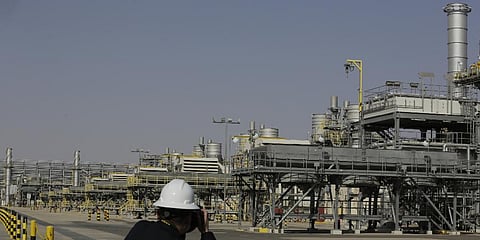

DUBAI: Saudi Arabia said on Monday that it “won't bear any responsibility" for a shortage in global oil supplies after a fierce barrage of attacks by Yemen's Houthi rebels affected production in the kingdom, the world's largest oil exporter.
The unusually stark warning marked a departure from the giant oil producer's typically cautious statements, as Saudi officials remain aware that even their smallest comments can swing the price of oil and rattle global markets.
The statement comes as the kingdom remains lockstep with OPEC and other oil-producing countries in a deal limiting increases in production and as energy prices rise higher amid Russia's war on Ukraine. Already, Americans have had to pay record-breaking prices at the pump for gasoline.
The state-run Saudi Press Agency quoted the Foreign Ministry as saying that “the international community must assume its responsibility to maintain energy supplies” in order to “stand against the Houthis.”
The repeated Houthi attacks will affect “the kingdom’s production capacity and its ability to meet its obligations,” the statement added, threatening the “security and stability of energy supplies to global markets.”
Benchmark Brent crude oil stood at over $112 a barrel in trading Monday.
On Sunday, Yemen's rebels launched a series of attacks targeting the kingdom's oil and natural gas production. The Saudi Energy Ministry had said the attacks at the Yanbu petrochemicals complex on the Red Sea coast led to a temporary drop in oil output.
The drone and missile strikes ignited a fire at a tank at a petroleum distribution in the Saudi port city of Jiddah and affected production at the gas facility in Yanbu. The overall extent of damage at the installations remained unclear.
The Saudi government condemned the attacks as posing a threat to the security of oil supplies “in these extremely sensitive circumstances” in the global energy market.
The relentless wave of strikes on Sunday marked one of the most intense Houthi barrages on the kingdom, exposing Saudi defence vulnerabilities and recalling the dramatic September 2019 attacks on two key oil installations that knocked out half of Saudi Arabia’s total oil production.
The White House sharply condemned the strikes and pledged to support Saudi Arabia's defence. Late Sunday, a senior administration official confirmed that the United States has transferred a significant number of Patriot antimissile interceptors to help Saudi Arabia defend against drone and missile attacks.